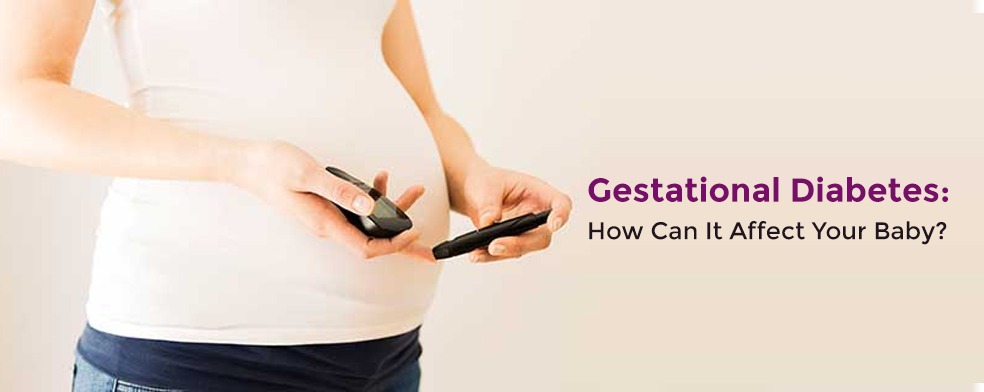Gestational diabetes is the term used for diabetes that specifically affects women, who do not have a prior history of the disease, during pregnancy. Just like in the case of normal diabetes, gestational diabetes affects your body’s ability to process sugar. The high blood sugar levels that result from gestational diabetes, can have a drastic impact on your baby’s health. It is a common pregnancy complication that is broadly classified into two categories – A1 and A2. A1 gestational diabetes can be easily managed with a healthy and active lifestyle, whereas A2 gestational diabetes can only be managed with the help of medication and insulin. Although gestational diabetes goes away once you give birth, the best IVF specialist in Noida suggests that leaving it unmanaged can impact your baby’s health and also increase your risks of developing type 2 diabetes in future

How to know if you have gestational diabetes?
It is pertinent to note that women with gestational diabetes do not usually experience any prominent symptom. However, there are three changes that you need to look out for:
- You are experiencing an increased urge to pee
- You are eating more than usual
- You are feeling thirstier than usual
Although experiencing these symptoms does not necessarily mean that you have gestational diabetes, there is no harm in getting yourself evaluated for the same. Screening for diabetes is important in pregnancy, irrespective of the fact whether you are experiencing the symptoms or not. It is quite possible that you might not experience any symptom at all and still be diagnosed with gestational diabetes.
What causes gestational diabetes and what are the risk factors involved?
It is yet to be determined why some women get gestational diabetes while others do not. Some IVF doctors in Noida suggest that it might be due to excessive weight gain during pregnancy, as this can alter the levels of hormones responsible for keeping your blood sugar levels under control. This makes it quite difficult for your body to process sugar. Certain factors that are likely to increase your risk of gestational diabetes include:
- Being overweight or obese, or gaining excessive weight during pregnancy
- Resorting to a stagnant lifestyle which is marked by lack of physical activity
- Having a history of gestational diabetes in your previous pregnancy
- Polycystic ovarian syndrome
- Diabetes in an immediate family member
- Delivering a baby weighing more than 9 pounds in a previous pregnancy
How can just gestational diabetes affect your baby?
Well, gestational diabetes can affect your baby in a number of ways by increasing the risks of the following: Excessive birth weight – High blood sugar levels in the mother’s body is likely to result in the abnormal growth of the baby. Search babies are very large, weighing more than 9 pounds.

- Preterm birth – High blood sugar levels are quite likely to increase the risks of early labour and delivery. This is usually due to the fact that the baby is very large, thereby making it difficult for the mother to carry it to full term.
- Breathing difficulties – Preterm babies born due to gestational diabetes are quite likely to experience serious breathing problems including respiratory distress syndrome.
- Hypoglycemia – Also known as low blood sugar, the problem is usually faced by babies shortly after birth. Search babies require prompt feedings and intravenous glucose.
- Increased risks of obesity and type 2 diabetes – Babies who are born to mothers having gestational diabetes are quite likely to develop chronic health issues like obesity and type 2 diabetes when they grow up.
- Stillbirth – Experts from the best IVF clinic in Noida suggest that if you do not treat or manage your diabetes properly, it can Trigger life-threatening complications, even resulting in stillbirth.

